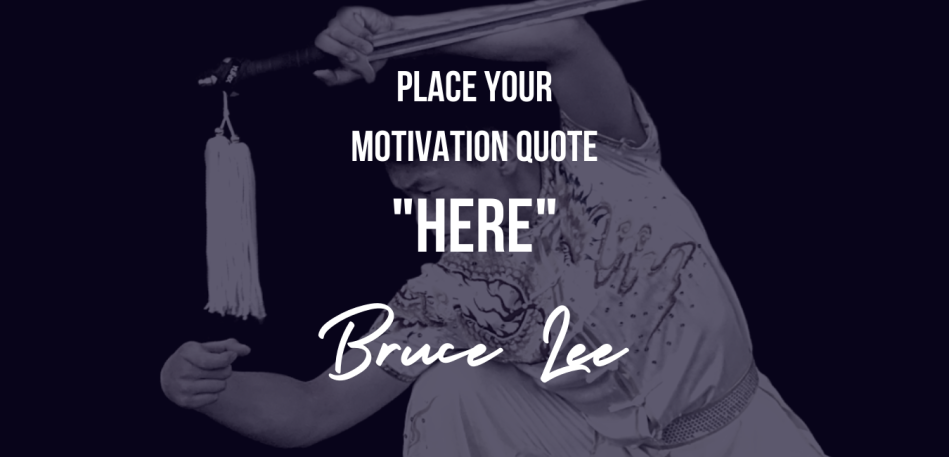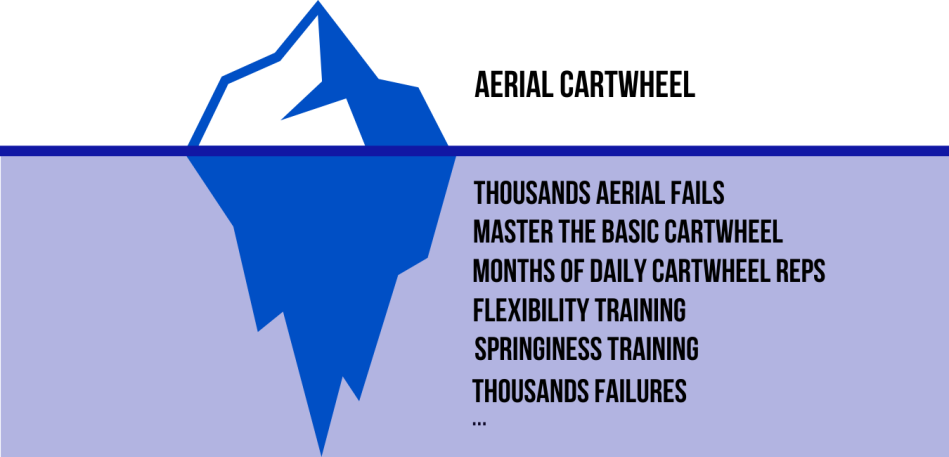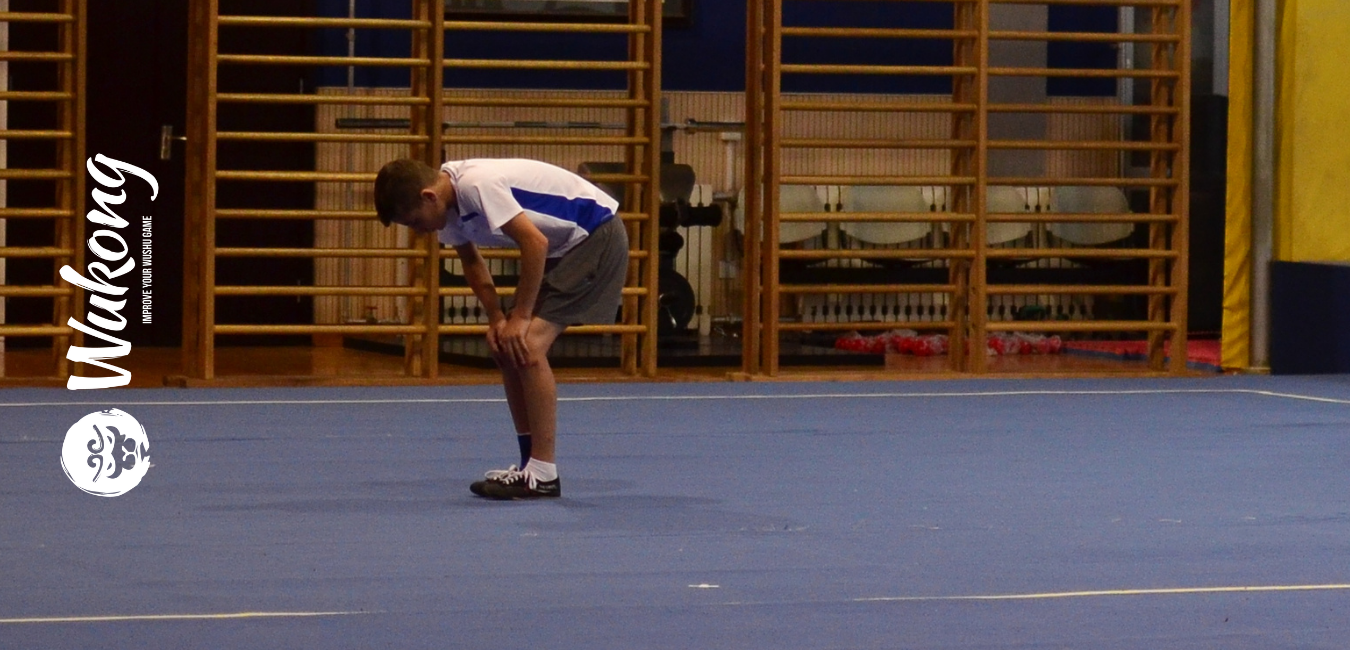Nowadays, EVERYTHING is about motivation:
You have motivation videos, music playlists, speechs, and quotes all over your favorite social medias, etc… and yet, sometimes you still skip training and wonder why your wushu is not as good as it should be (or as you wish it should be).

Instead of telling you that your Wushu is not good because you don’t train enough, or not the right way, and / or have a bad coach, let’s work on solutions to improve your mindset. Because you’re most probably the main reason why your Wushu is not improving.
Differentiate “Motivation” from “Discipline”:
When it comes to semantics, the best tool to understand the meaning of a word should be the dictionary. Let’s see what the Oxford dictionary says:
Motivation (noun)
1. (countable, uncountable) the reason why somebody does something or behaves in a particular way.
2. (uncountable) the feeling of wanting to do something, especially something that involves hard work and effort.
So… Do you know the reason(s) why you are training? Normally you should. But still ask yourself the question. Is it for fun? To reach X level? To win X competition? For fame? …
Everybody has one or several motivation(s). Motivation is NOT what you’re lacking of.
Yes, motivation has peaks and dips, but it’s always there. You will always want to perform like that Chinese athlete you’ve seen on Instagram or Youtube, therefore you know that need to train to get closer to his level.
Sometimes even just thinking about it will motivate you. Some other times you will have to watch tons of videos before going to training to put you in the right mindset to train, even when you don’t feel like it.
What You Need is Discipline:
Discipline (noun)
1. (uncountable) the practice of training people to obey rules and orders and punishing them if they do not; the controlled behaviour or situation that is the result of this training.
2. (countable) a method of training your mind or body or of controlling your behaviour; an area of activity where this is necessary.
3. (uncountable) the ability to control your behaviour or the way you live, work, etc.
The #2 and #3 are closer to what we are looking for.
Two words especially, should be drawing your attention : “Control” and “Behaviour”. It is what it is. Discipline is a controlled behaviour.
If you wish to become an international athlete, then you already have the motivation. AND you already know you have to train hard (5 to 6 days a week at least depending on your training structure and quality).
Now what you need is to control this behaviour. Not letting your “motivation dips” put you down and make you skip training.
A famous saying in Chinese martial arts goes:
One day of training equals one day of training ; 1 day without training equals 10 days without training
一日练一日功 一日不练十日空
You might probably have seen it before, but the point is that training while you’re not motivated will:
- Still get you trained = You will see improvement, even if not exactly on that day / period
- Forge your mind = The more you strive through your trainings, fighting your brain telling you that you should skip training, the more easy trainings will get, and you’ll be less and less reluctant to train on “bad days”. This is how you set up a disciplined mindset
- Make you feel good = You (and your coach) won’t be blaming yourself for not attending class. Your brain will tell you that you did well even if you might not have given your best. And you will feel rewarded for having trained when you didn’t want to.
Setting proper discipline works in many ways, but I believe the last 2 points are KEYS.
Forge the Proper Mindset:
To be disciplined, you need to discipline yourself. That’s as stupid as it sounds.
Sometimes, you just have to force yourself to do things you don’t want to. Because nothing really worthy comes easy.
What else were you going to do anyway? Watching Netflix? Binge drinking with your friends? … Even if these can be nice moments for some people, I’m sure you can find other time slots that don’t happen to be right at the same time as your scheduled training. BUT most importantly, you WILL NOT feel rewarded by these.
Every time you don’t feel like training, ask yourself:
- What are you going to do instead?
- Will you be proud of what you will be doing?
- Will it get to you any of your life goals (related or not to Wushu)?
- How will you feel afterwards (i.e. will you feel rewarded?)
- …
The Importance of Rewards:
Human beings are taught to work on reward, it its the carrot and stick principle. Use this at your advantage.
We already know that you will feel good when the training you didn’t want to go to will be over, because you will still have trained, reached another level, received congratulations from your coach and/or training partners, etc.
All these little things will definitely contribute to help setting a discipled mindset. But what’s more rewarding than achieving a goal?
Go One Step at a Time
Achievements are Your Carrots. If you want to achieve things you’re working for often, then you have to review your goals and set achievable goals, “smaller” goals, that put together will lead to achieve a greater goal.
Set several small goals or “steps” so that you can be sure to reach one by one, putting “less efforts” in, so that you can get this “achievement feeling” that will help you stay disciplined.
One example: Let’s suppose you do modern Wushu and are not yet able to do a normal cartwheel, but that your goal is to be able to perform a proper aerial cartwheel (Cekongfan 侧空翻).
IF that’s your only goal, without any clearly identified steps to achieve it, the probability of actually succeeding will be close to 0.
You all have heard of the Iceberg Theory saying that people only see the tip of the Iceberg with often not considering the biggest part of it, hidden below sea level:

Here, what’s under sea level are only a few examples of what it takes to achieve an aerial. Therefore THESE ARE YOUR SMALLER STEPS! Transform them into milestones to feel great by achieving them and get closer to your BIG GOAL.
Now, Draw a pyramid, and put as much steps as you want, and validate them EVERY TIME you achieve one of them.

Again, these are only examples of some milestones to reach one by one.
Of course you can put as many other small steps in between, before, or after these, or even change these to your own goals. Also, this example doesn’t include all the achievements from “parallel” training, that will help a lot, such as: weightlifting, splits training, springiness training, and many more!
What’s Next
Once you’ve reached your highest goal, just set some new ones! And repeat!
For example, once you’ve mastered the aerial, your next big goal could be to master the execution of Tengkong Feijiao 腾空飞脚 + Aerial 侧空翻+ Xuanfengjiao 旋风脚 360°/540°/720°, and/or to go for the aerial twist!
Also, do not hesitate to have different goals following the same step by step process! And these goals should cover different areas of Wushu. If we keep the aerial example, also had other goals like having a perfect Mabu, increase speed and flexibility, learn more about the culture, study a new weapon or a new taolu, etc!
Remember, the only real limits to achieve your goals are the ones you set to yourself. Believe in yourself, be patient and disciplined, because smart and hard work always pays off.
Jiayou 加油!

